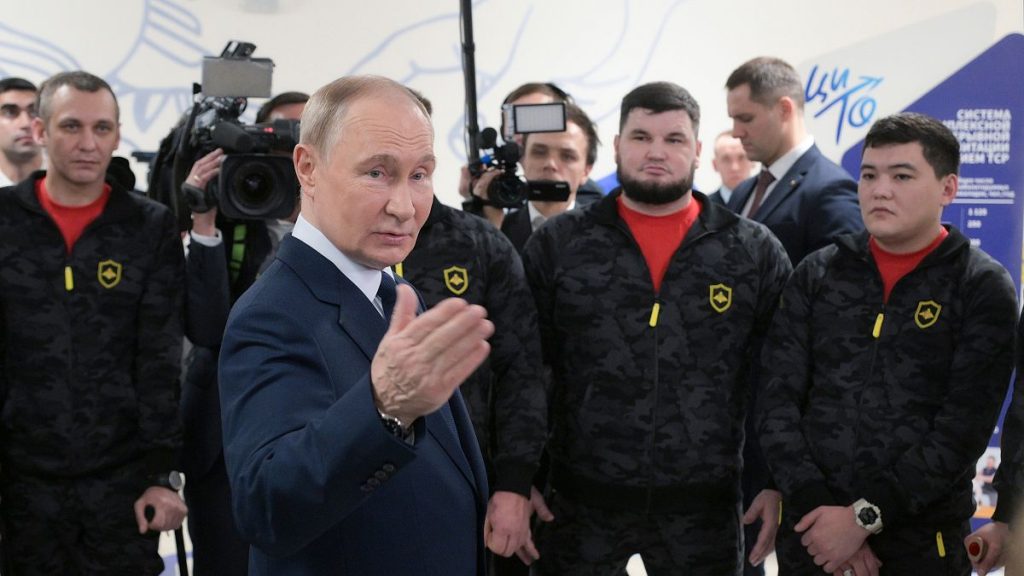On the occasion of International Day of Persons with Disabilities, Russian President Vladimir Putin held a significant meeting with veterans who had been injured in the ongoing conflict in Ukraine. During this meeting, he expressed profound gratitude to the veterans for their bravery and sacrifice, acknowledging their courage in the face of adversity. Putin emphasized the responsibility of the state to ensure that these disabled soldiers are afforded the necessary support and resources to lead full and fulfilling lives following their injuries sustained in combat. His remarks underscored the importance of not just recognition but also actionable steps towards rehabilitation and integration for those who have served.
The gathering took place in Moscow at the Centre for Innovative Technologies in Orthopaedics, a facility dedicated to the development and production of advanced prosthetics. During his visit, Putin toured the center, observing the intricate processes involved in creating prostheses for both upper and lower limbs. This visit highlighted the Russian government’s commitment to addressing the needs of injured veterans through state-of-the-art medical technology and rehabilitation solutions. The president’s personal engagement in inspecting the production facilities symbolized a significant gesture of support, reinforcing the message that the state holds a responsibility towards its veterans.
Putin’s reassurance to the injured soldiers, stating, “Everything will be fine,” aimed to foster a sense of hope and promise among them. His comments were intended to uplift the spirits of those undergoing rehabilitation, instilling in them a belief that recovery is not only possible but also supported by the government. This sentiment is crucial, as psychological reinforcement plays a vital role in the rehabilitation process for injured soldiers. The ongoing conflict has left a notable mark not only on those directly involved but also on the broader fabric of society, making the government’s role in offering robust support systems even more essential.
The chronicling of military injuries was further highlighted by a report from The Wall Street Journal in September, which revealed the staggering toll the conflict has taken, with nearly one million Ukrainians and Russians reportedly killed or injured since Russia’s full-scale invasion began in 2022. This statistic emphasizes the profound human cost of the war, accentuating the need for comprehensive care for veterans. The enormity of this figure paints a grim picture of the ongoing conflict’s impact, intensifying the urgency for governments to prioritize the welfare of those who have been harmed.
In addition to technical advancements in prosthetics, the discussion surrounding veteran care also touches on broader topics such as psychological support, social reintegration, and the sustainable provision of healthcare services. For many injured veterans, the journey towards recovery includes overcoming not just physical challenges, but also the mental and emotional hurdles associated with their experiences in combat. Therefore, an emphasis on holistic treatment approaches is essential in ensuring that these individuals can transition successfully into civilian life and regain their independence.
Ultimately, Putin’s visit and remarks signify a crucial acknowledgment of the sacrifices made by these veterans. By highlighting the need for state support and the ongoing commitment to innovation in rehabilitation technologies, the government aims to create an environment where disabled soldiers can rebuild their lives. The conversation on veteran welfare will continue to evolve, shaped not only by the immediate needs arising from the conflict but also by a broader societal responsibility to honor and care for those who serve. Addressing the challenges faced by these individuals requires a multifaceted approach, ensuring that they are equipped with both the physical tools and emotional support needed to thrive post-injury.

